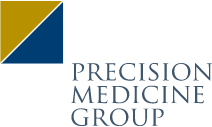By Anuraag Sarangi
Pharmaceutical Market Europe • March 2022 • MEDICAL AFFAIRS
Today’s healthcare providers (HCPs) face enormous challenges in an ever-changing healthcare environment, which is complicated by their need to remain current with the data deluge generated from complex and personalised treatments. They seek accurate and up-to-date information to aid in their decision-making process for the benefit of their patients.
Biopharma companies recognise that the medical affairs (MA) function can be crucial to meeting the needs of today’s HCPs, who crave greater interaction with the field MA team. MA teams are uniquely positioned to be the experts for scientific exchange with HCPs and to generate insights for their companies, which can ultimately inform strategic direction.
As a result, MA teams are increasingly playing a greater strategic role within biopharma companies, while also collaborating closely and compliantly with their commercial partners. The conventional structure of siloed functions and individual ‘swim lanes’ is evolving into a more fluid structure that allows for greater coordination between functions to meet the changing demands of internal and external stakeholders.
It is a well-known adage that necessity is the mother of all invention. It certainly rings true when considering the key factors that are driving these changes in the MA role within the biopharma industry:
- The emergence of smaller and more nimble biopharma companies spearheading medical innovation
- The inherent complexity of advanced therapies in development and in the clinic
- The increasing use of digital channels by HCPs
These factors will remain important for MA teams and their commercial colleagues in 2022 and beyond.
‘As launch timelines become compressed and treatments grow more complex, medical affairs teams can help find the right path and approach, supported by scientific evidence, to achieve company and product objectives’
Factors impacting medical affairs
The MA function possesses the strategic and clinical expertise that, when engaged properly across an organisation, can play a vital role in driving business goals. As launch timelines become compressed and treatments grow more complex, MA teams can help find the right path and approach, supported by scientific evidence, to achieve company and product objectives.‘The conventional structure of siloed functions and individual ‘swim lanes’ is evolving into a more fluid structure that allows for greater coordination between functions to meet the changing demands of internal and external stakeholders’From our vantage point within the industry, three trends are the driving forces behind MA’s evolving strategic responsibility in biopharma.
1 Innovation is increasingly happening at smaller firms.
The past few years have seen a rapid rise in emerging biopharma companies, mergers and acquisitions, and investment activities, especially in the areas of oncology, rare diseases, and cell and gene therapies. This pace of innovation continues to attract MA professionals to emerging companies.
Given the modest size of their teams, these biopharma companies are adopting a flexible organisational structure during early product development – more is being done with fewer resources.
To successfully accomplish more, exceptional collaboration and communication across cross-functional stakeholders is imperative and is contributing to MA’s central role in bridging the gap between R&D and commercialisation.
For companies looking to launch their first therapy into the market, MA is often leading the effort in crafting the differentiation strategy and scientific narrative for the therapy which becomes the evidence-based foundation for subsequent communication activities and medical education cross-functionally.
The MA teams also become the de facto keepers of scientific knowledge and voice of the customer as they expand key opinion leader interactions and insights management during clinical development phases.
2 New therapies are more advanced and complex in their development and use in the clinic.
Treatments are becoming more advanced in their modes of action, uses and effects. The increasing number of treatments has been a boon for HCPs and patients, with therapies that can address difficult-to-treat diseases and in some cases have curative potential. At the same time, these advances require companies to tackle additional complexities scientifically and operationally, as well as within the market access and regulatory landscape. It has become vital to closely monitor market, clinical, regulatory and economic forces to best understand how to bring advanced therapies to the clinic and transform the standard of care.
MA plays an influential role by gathering relevant insights from key medical experts, identifying sites of engagement and helping drive the clinical development process forward. MA teams are increasingly called upon to lead scientific exchange not only with HCPs, but also with other customer stakeholders such as payers and health systems.
In addition, MA teams are becoming increasingly involved in patient advocacy in the areas of rare diseases and gene therapy, gaining a deeper understanding of patient needs that can have significant influence in the selection of clinical trial end points and increasing access to therapies. Thus, MA teams are well positioned to add value at every point along the therapy development continuum.
3 There has been a paradigm shift in the use of digital and social media channels by HCPs.
Communicating with HCPs using remote interaction tools has become a necessity for the field MA teams, propelled by the COVID-19 pandemic. Engaging key opinion leaders using virtual platforms or during hybrid events will be a mainstay of MA operations as the pandemic continues.
Moreover, an emerging segment of HCPs – so-called digital opinion leaders – has become highly visible in their areas of expertise by growing and maintaining a strong online following of peers and patients. Information – and opinions – are now readily available to HCPs and patients to absorb through a plethora of digital channels.
‘The macro trends that boost industry innovation and digitisation will continue to fuel the growth of the medical affairs function as biopharma leans on these internal experts to drive engagement with the larger medical community’Consequently, it has become increasingly important for both MA and commercial teams to observe and engage this expanded segment of opinion leaders.
The world of digital engagement, once primarily the domain of marketing teams, is generating more interest from MA teams as they explore ways to meet and engage with medical experts wherever they are present – both offline and online. The emergence of digitally savvy HCPs has encouraged MA teams to closely examine their approach to customer engagement and customer experience from an omnichannel perspective.
A data-driven approach supported by actionable customer insights enables strategic alignment of interactions with customers based on preferred channels, content and cadence to optimise engagements and drive greater impact.
Leveraging broader data sources is also empowering MA teams to adapt their conventional performance metrics to the new normal.
This decade, which started with an unprecedented challenge for the world, promises to be the dawn of a new era of strategic value for MA teams in the evolving biopharma landscape. The macro trends that boost industry innovation and digitisation will continue to fuel the growth of the MA function as biopharma leans on these internal experts to drive engagement with the larger medical community.

Anuraag Sarangi is AVP, HCP Strategy and Insights at the medical communications firm PRECISIONscientia
For more information on PRECISIONscientia Medical Affairs support click here







